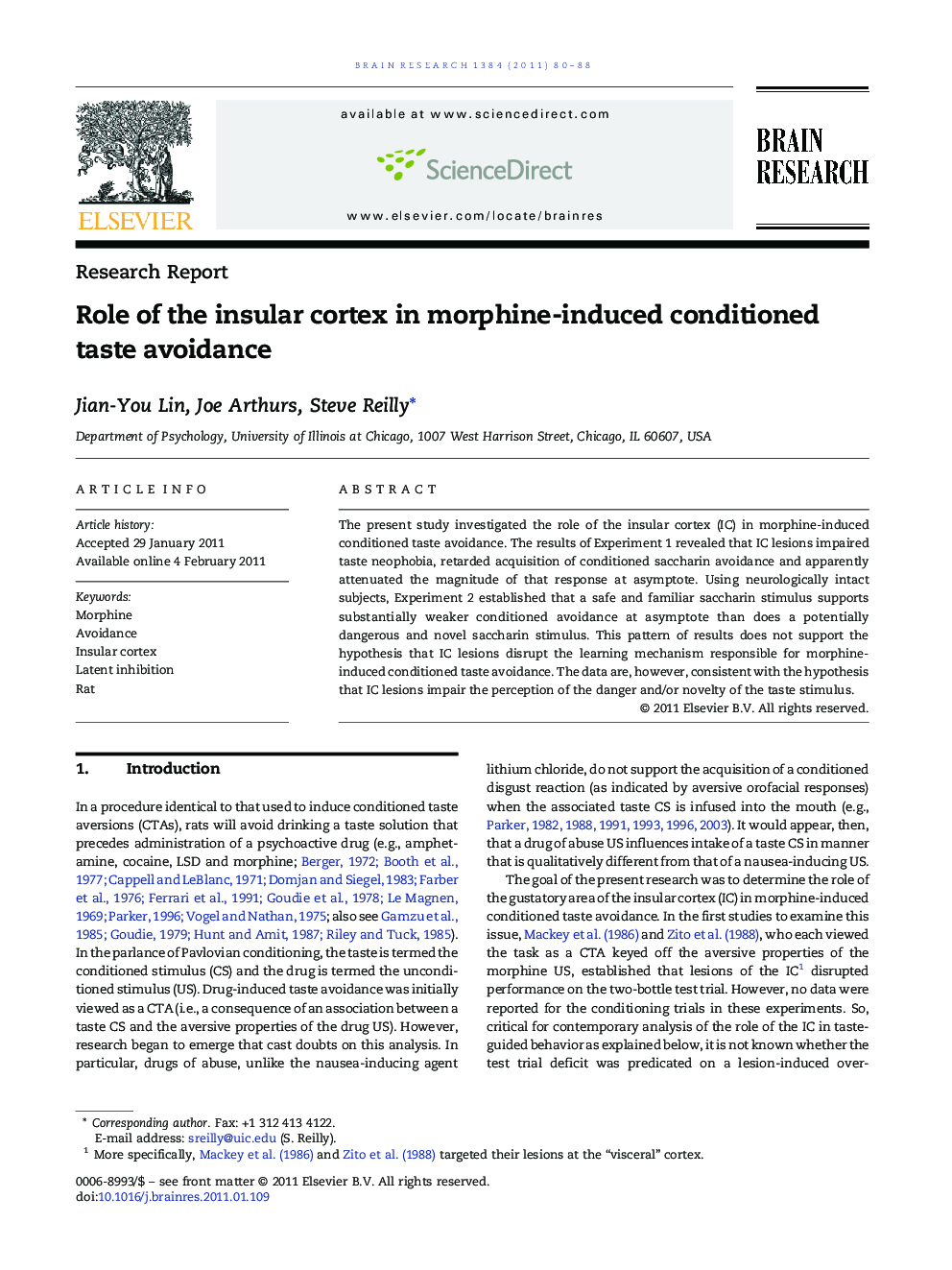| Article ID | Journal | Published Year | Pages | File Type |
|---|---|---|---|---|
| 6265030 | Brain Research | 2011 | 9 Pages |
The present study investigated the role of the insular cortex (IC) in morphine-induced conditioned taste avoidance. The results of Experiment 1 revealed that IC lesions impaired taste neophobia, retarded acquisition of conditioned saccharin avoidance and apparently attenuated the magnitude of that response at asymptote. Using neurologically intact subjects, Experiment 2 established that a safe and familiar saccharin stimulus supports substantially weaker conditioned avoidance at asymptote than does a potentially dangerous and novel saccharin stimulus. This pattern of results does not support the hypothesis that IC lesions disrupt the learning mechanism responsible for morphine-induced conditioned taste avoidance. The data are, however, consistent with the hypothesis that IC lesions impair the perception of the danger and/or novelty of the taste stimulus.
Research Highlights⺠Insular cortex (IC) lesions disrupt taste neophobia. ⺠IC lesions delay acquisition of conditioned taste avoidance induced with morphine. ⺠Taste familiarity reduces the asymptote in morphine-induced taste avoidance.
